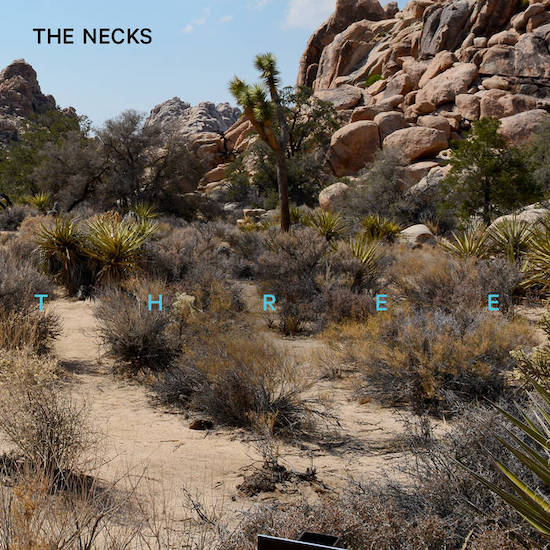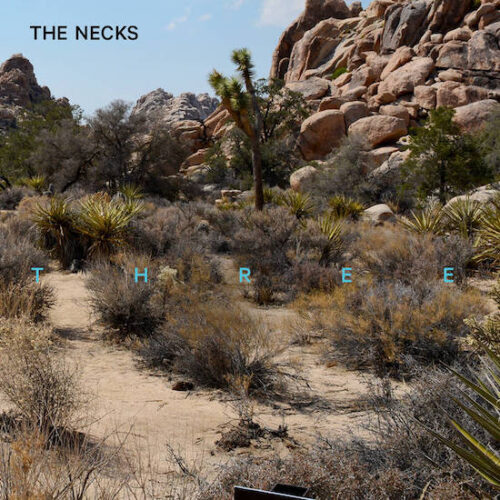Here we have The Necks’ twenty-first album. After a collaboration of more than thirty years, The Necks have become, and remain, one of the most arresting and sophisticated bands on the planet. The three pieces on offer here continue that now seemingly unshakable legacy.
I think it would be a mistake to think of The Necks purely in terms of jazz. Their reach extends to various other musical forms, finding us in a realm of highly contemporary and wilfully playful and experimental composition and performance. The musical borders are unfixed and vague – which can only be a good thing.
Where the live performances of the band are improvisational and reactive, this here feels minutely arranged. The attention to detail in such complex noise is pretty awe-inspiring. I think The Necks well understand the difference and potential of thinking of live and studio work as distinct disciplines. In reifying music in the way that we do, we open up a huge matrix of performative interstices, all of which are malleable and compositional in their own right. The Necks get this. Absolutely.
We have three contrasting moods here that well-evidence the depth and sensitivity of the musicians here. ‘Bloom’ is a work that seems to induce an arresting sense of time dilation. Its relentless rhythms and patterns cause an effect where, after two minutes it feels like it’s been playing forever, but after twenty minutes it feels like it’s over in a flash. At no point, in every listen, have I been anything but engrossed. It seems to borrow the interlocking patterns and gradual shifts employed by minimalist composition, but in a context so dense and maximalist as to seem paradoxical. It is so rich in timbre, texture and well-placed interval that the experience is stiflingly psychedelic. It’s wonderful. The subtly shifting hi-hat motif alone is a thing of brilliance. Tony Buck is a drummer of rare greatness.
What follows is a tremendous gear-shift into ‘Lovelock’ a crippling lament for Celibate Rifles frontman Damien Lovelock, who passed away last summer. Here, the density of the first track gives way to untethered spaciousness, a lack of harmonic and metric hierarchy, and drawn out gestures of atonality. Whenever we briefly find a harmonic focus, mostly provided by Lloyd Swanton’s sporadically bowed double bass, we can breathe just quickly, as the sound shifts strangely away. It’s a bit like trying to follow the shape of an octopus in motion. As an articulation of the hopeless, structureless meanderings of grief, it’s pretty powerful. I think this is probably the first time I’ve needed to consider the potential emotional charge of a drum roll. This track interchanges extended technique and simple arpeggios so beautifully. The crass semiotic structures we’ve set up to describe musical meaning in the west seem insufficient, as they always do with great music. we’ve crossed the threshold of representation and the sublime.
Third track ‘Further’ finds The Necks in more playful, and dare I say, relaxed form. Languid chords and chattering percussion play out over a solid, but unhurried 5/4 groove. It’s interesting to note that both recording and mastering engineers are name-checked as collaborators here. A status not often afforded to these roles, but it seems totally appropriate here. There is an architecture at work that has been realised not just through performance, but by capture, and the careful sculpting of the mixes. It really is outstanding work on all fronts. Each track here has a distinct and complementary topography. Places to explore, spend time in, and marvel at. The Necks remain at the top of their game.



